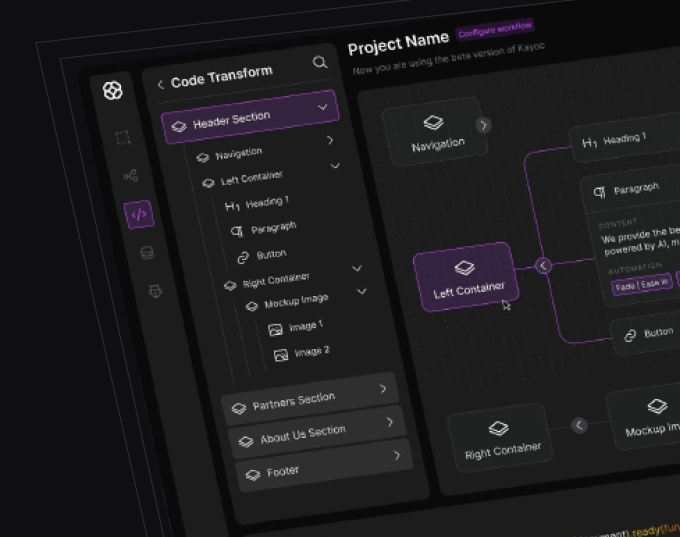GCP Services
Unlock The Power of Google Cloud With A3Logics

Unlock The Power of Google Cloud With A3Logics
Heimler’s Journey From Blind Spots to Business Clarity – A3Logics Unleashes the Power of Live Intelligence
Discover More
Redefining the Future of Lending – Cred Fintech’s Monumental Transformation with A3Logics
Discover More
Revolutionizing Credit Risk – How A3Logics and Heimler Redefined Trust and Precision with Machine Learning
Discover More
Transforming Risk to Opportunity – A3Logics and Heimler Revolutionize Credit Risk Modelling
Discover More





















Unlock the Power of Google Cloud by partnering with A3Logics. Our cloud consultants have extensive experience in providing Google Cloud Services including GCP migration, integration, security etc. Contact us for a free consultation and take your business to the next level

We provide strategic Google Cloud Consultancy & advisory services to help enterprises leverage Google Cloud Platform for their needs. Our consulting teams assess client workloads, evaluate on-premise environments for migration suitability, analyze costs vs benefits, and recommend GCP solutions.
We work with clients to build enterprise-wide strategies & roadmaps for cloud adoption & migration. Services include identifying workload priorities, integration phases, resource controls, SLAs & KPIs. It ensures a smooth transition without disruptions.
A3Logics integrates Google Cloud capabilities with on-premise systems and between Google Cloud services. We enable hybrid cloud architectures, migrate select workloads, integrate identity systems, configure APIs, deploy enterprise networking, and more while maintaining consistent policies and management.
We provide fully managed and co-managed services to deploy, configure, and operate your Cloud environment. Managed services include instance provisioning, network configuration, storage management, resource allocation, monitoring, patching, backups and disaster recovery.
A3Logics specializes in migrating business-critical workloads to Google Cloud with low/zero downtime using tools like Cloud Endure Migration and Dynamic Platform Migration. We have a proven track record of migrating databases, messaging platforms, ERP systems and virtual desktops to Google Cloud.
We provide end-to-end testing and deployment assistance for applications developed or migrated to Google Cloud. Services span integration testing, load testing, stress testing, user acceptance testing, rollback support, one-time and continuous deployment through CI/CD pipelines.
Our assessment encompasses a deep dive into your current on-premises infrastructure, including meticulously evaluating systems, networking, storage solutions,security protocols and identify any constraints.
We conduct collaborative workshops with your team to align our migration strategy with your performance metrics. We discuss SLA’s & regulatory compliances to understand your growth trajectory.
Strategizing the migration involves prioritizing crucial workloads, charting out a phased approach with clear timelines, understanding dependencies, and securing necessary approvals.
We bolster your capabilities with the necessary resources and expertise to establish a robust Google Cloud Services environment, configuring networks, subnets, and security measures.
Our support extends beyond the migration. We are committed to delivering round-the-clock monitoring and management for your Google Cloud environment which keep your operations smooth.
Tops businesses choose A3Logics as your open enrollment solutions provider. Here is why-
Our Google certified professionals bring a wealth of experience in deploying and managing complex cloud solutions. With deep expertise in key tech areas, we ensure your cloud strategy is robust and secure.
We take a personalized, consultative approach to understand and address your unique cloud needs. Our strategies are customized to align perfectly with your business objectives for maximum efficacy.
Securing your Google operations is our forte. We employ stringent security measures and privacy protocols to safeguard your data, adhering to the highest cloud security standards. Our proactive approach involves continuous vigilance and updates to stay ahead of threats.
Our monitoring of Google cloud Services ensures optimal performance. We continuously fine-tune your services for peak efficiency, leveraging data insights for strategic enhancements. We keep your services agile and responsive by anticipating needs and scaling resources.
As a versatile multi-cloud provider, we enable you to harness the full potential of Google cloud and other leading platforms, ensuring a flexible and resilient cloud ecosystem for your business.
Choose us for a synergistic team approach that prioritizes partnership and transparency, delivering top-tier Google cloud platform services. Our 24×7 support and swift SLAs mean your mission-critical issues are resolved with unmatched reliability.
A3Logics redesigned the logistics software of a mobile app solutions company’s end customer. The project included creating a comprehensive solution with reporting features, order tracking, and system updating.

“Their distinct flexibility and their strong communication were the project’s main assets.”


A construction technology company hired A3Logics for custom software development. They created a construction digital platform that allows users to see project areas, distribute resources, and share data.
“Their software has proven essential in the construction sector.”

A3Logics created and implemented a custom logistics software solution for a wealth management platform. This included developing features and integrating real-time tracking and data analytics functionalities.

“They ensured our collaboration went well by providing timely items and responding quickly to our requests.”


A3Logics created and executed a personalized Generative AI system that featured chatbots for customer service, prediction algorithms, and AI-powered data analysis tools.

“Their technical expertise and reactivity were excellent.”


A3Logics has developed an administrative management system for a health testing company. The product is designed to handle operations such as consultant matching, time reporting, and compensation management.

“The collaborative team we’ve worked with has shown great flexibility and excellent project integration.”


A transportation company hired A3Logics to create a custom software program for freight activity tracking. The team also created invoicing tools and a driver-tracking system connected to a dispatch system.

“Their thorough inquiry and engagement with our team reflect their commitment to understanding our requirements.”


Google Cloud migration refers to moving workloads from on-premise data centres to the Google Cloud platform. Key benefits include scalability through easily adjusting resources up or down. Improved flexibility through rapid configuration changes of resources measured in minutes. Higher agility through streamlined release cycles, experimental features and faster iteration. The ability to focus internal teams on key competencies rather than infrastructure management. Enhanced security through automatic updates, advanced features and Google’s scale-preventing threats. Tight integration between Google Cloud and other Google services like AI, ML, data analytics and search & advertising optimization. Migrating all or part of an on-premise environment can help transform businesses through Google Cloud’s capabilities.


Marketing Head & Engagement Manager